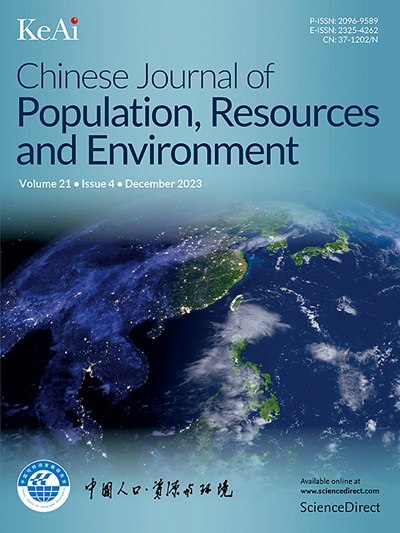数字经济发展与碳排放:文献综述
IF 4.8
4区 环境科学与生态学
Q2 ENVIRONMENTAL STUDIES
Chinese Journal of Population Resources and Environment
Pub Date : 2025-09-01
DOI:10.1016/j.cjpre.2025.07.007
引用次数: 0
摘要
在数字时代,发展数字经济对促进减少二氧化碳排放具有重要的现实意义。然而,现有的研究必须澄清驱动二氧化碳排放实际变化的关键“隐藏”机制。虽然数字经济和二氧化碳排放都是广泛研究的主题,但以前的文献很少对其潜在机制进行明确的研究。本文通过详细的文献梳理,发现数字经济通过技术、结构、资源配置和空间溢出四个主要渠道影响二氧化碳排放。然而,由于这些渠道的相互作用,不应单独审查。此外,这四个通道中的每一个都可以进一步细分,因此探索它们之间的子路径和相互联系至关重要。通过对数字经济如何促进二氧化碳减排提供更细致的理解,本研究提供了有价值的见解,可以为战略政策制定提供信息。本文章由计算机程序翻译,如有差异,请以英文原文为准。
Digital economic development and carbon emissions: A literature review
In the digital era, the development of the digital economy has gained significant practical importance for enhancing reductions in carbon dioxide (CO2) emissions. However, existing studies must clarify the key “hidden” mechanisms driving actual changes in CO2 emissions. Although both the digital economy and CO2 emissions are widely researched topics, previous literature has rarely provided an explicit examination of their underlying mechanisms. This study conducts a detailed literature review and finds that the digital economy affects CO2 emissions through four main channels: technical, structural, resource allocation, and spatial spillover. However, these channels should not be examined independently due to their interactive effects. Moreover, each of these four channels can be further subdivided, making it essential to explore the subpaths and interconnections among them. By offering a more nuanced understanding of how the digital economy contributes to CO2 emissions reduction, this study provides valuable insights that can inform strategic policy development.
求助全文
通过发布文献求助,成功后即可免费获取论文全文。
去求助
来源期刊

Chinese Journal of Population Resources and Environment
ENVIRONMENTAL STUDIES-
CiteScore
4.30
自引率
1.10%
发文量
791
审稿时长
79 days
期刊介绍:
The Chinese Journal of Population, Resources and Environment (CJPRE) is a peer-reviewed international academic journal that publishes original research in the fields of economic, population, resource, and environment studies as they relate to sustainable development. The journal aims to address and evaluate theoretical frameworks, capability building initiatives, strategic goals, ethical values, empirical research, methodologies, and techniques in the field. CJPRE began publication in 1992 and is sponsored by the Chinese Society for Sustainable Development (CSSD), the Research Center for Sustainable Development of Shandong Province, the Administrative Center for China's Agenda 21 (ACCA21), and Shandong Normal University. The Chinese title of the journal was inscribed by the former Chinese leader, Mr. Deng Xiaoping. Initially focused on China's advances in sustainable development, CJPRE now also highlights global developments from both developed and developing countries.
 求助内容:
求助内容: 应助结果提醒方式:
应助结果提醒方式:


